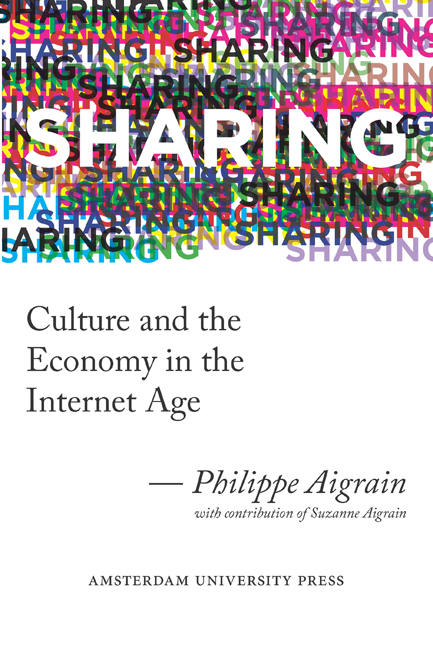12 - From Proposal to Reality
Published online by Cambridge University Press: 19 January 2021
Summary
It is time to reflect on whether and how the proposals developed in this book can attract a critical mass of support. The last few years have seen a subtle but significant evolution. Proposals for a flat-rate financing of culture and the recognition of file sharing first arose as a reaction against repressive laws. Geographically, they followed the world-wide dissemination of these laws, which was co-ordinated by a few interest groups such as the International Chamber of Commerce or specialized media interest groups. Flat-rate proposals were made in response to DRM anti-circumvention laws, then to “three-strikes and you are out of the Internet” laws, and now to the present generation of laws requiring the compulsory filtering of sites. This process is still at work, but another agenda is developing: the financing of sharing-compatible digital creativity is seen as a goal in and of itself. This approach was present from the start, but less visible. In this concluding chapter, we outline the trajectories along which this autonomous agenda is unfolding. These paths will cross and part, blend and diversify, with unpredictable results. But they all have a role to play in laying the foundations for a sustainable digital cultural ecosystem, and making it a reality.
Grassroots Internet and creative communities
James Love's former Consumer Project on Technology and the present Knowledge Ecology International have been consistently promoting an independent vision of how culture could be financed and shared in the digital era since 2002. Several milestones were reached along the road. In 2006, the Paris Accord meeting brought together representatives of Internet policy, consumer groups and creative communities to try to define a common road-map on these issues. That same year, scholars and Internet policy specialists met in Chicago at the 10th anniversary conference of the peer-reviewed on-line journal First Monday to reflect about how to make collaborative creativity sustainable. Even though these events received a significant amount of attention on the Internet, it is fair to say that the sound waves did not propagate far beyond circles specialized in the access to knowledge and culture.
The increasingly mingled grassroots Internet and creative communities have a key asset: they do not wait for things to happen, they make them happen. The ideas we presented in this book would have remained confined to small groups if content authors had not started to authorize sharing of their works.
- Type
- Chapter
- Information
- SharingCulture and the Economy in the Internet Age, pp. 169 - 178Publisher: Amsterdam University PressPrint publication year: 2012



